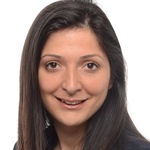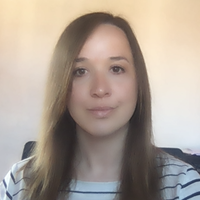Ph.D. opportunities at the International Max Planck Research School for Intelligent Systems
The Max Planck Institute for Intelligent Systems and the Universities of Stuttgart and Tübingen collaborate to offer an interdisciplinary Ph.D. program, the International Max Planck Research School for Intelligent Systems (IMPRS-IS). IMPRS-IS will accept its seventh generation of Ph.D. students in spring of 2023.
This school is a key element of Baden-Württemberg’s Cyber Valley initiative to accelerate basic research and commercial development in artificial intelligence and robotics. We seek students who want to earn a doctorate while contributing to world-leading research in areas such as:
- Biomedical Technology
- Computational Cognitive Science
- Computer Vision and Graphics
- Control Systems and Optimization
- Data Science
- Haptics and Human-Computer Interaction
- Machine Learning
- Micro- and Nano-Robotics
- Neuroscience
- Perceptual Inference
- Robotics and Human-Robot Interaction
- Soft Robotics and Materials
The participating faculty are Aamir Ahmad, Zeynep Akata, Frank Allgöwer, Alexander Badri-Spröwitz, Robert Bamler, Christian F. Baumgartner, Philipp Berens, Matthias Bethge, Michael J. Black, Wieland Brendel, Andrés Bruhn, Andreas Bulling, Paul-Christian Bürkner, Martin Butz, Manfred Claassen, Caterina De Bacco, Benedikt V. Ehinger, Peer Fischer, Andreas Geiger, Martin A. Giese, Moritz Hardt, Daniel Häufle, Matthias Hein, Philipp Hennig, Wenqi Hu, Christoph Keplinger, Katherine J. Kuchenbecker, Hyosang Lee, Hendrik Lensch, Falk Lieder, Nicole Ludwig, Jakob Macke, Setareh Maghsudi, Georg Martius, Michael Mühlebach, Mathias Niepert, Nico Pfeifer, Seong Joon Oh, Gerard Pons-Moll, Michael Pradel, Tian Qiu, C. David Remy, Samira Samadi, Syn Schmitt, Bernhard Schölkopf, Gabriele Schweikert, Michael Sedlmair, Fabian Sinz, Metin Sitti, Steffen Staab, Ingo Steinwart, Jörg Stückler, Justus Thies, Benjamin Unger, Alexander Verl, Ulrike von Luxburg, Felix Wichmann, Bob Williamson, Andreas Wortmann, Thomas Wortmann, and Charley M. Wu.
Associated faculty include R. Harald Baayen, Franz Baumdicker, Peter Dayan, Jonathan Fiene, Bedartha Goswami, Ksenia Keplinger, Miriam Klopotek, Anna Levina, Kay Nieselt, Peter Ochs, Peter Pott, Gunther Richter, and Maria Wirzberger.
Intelligent systems that can successfully perceive, act, and learn in complex environments hold great potential for aiding society. We seek doctoral students who are curious, creative, and passionate about research to join our school and help advance human knowledge about intelligent systems.
- Admitted Ph.D. students can join our program starting in spring of 2023.
- You will be mentored by our internationally renowned faculty.
- You will conduct your research in either Stuttgart or Tübingen, Germany.
- IMPRS-IS offers a wide variety of scientific seminars, workshops, and social activities.
- All aspects of our program are in English.
- Your doctoral degree will be conferred when you successfully complete your Ph.D. project.
- Our dedicated staff members will assist you throughout your time as a doctoral student.
People with a strong academic background and a master’s degree (conferred or expected soon) in Engineering, Computer Science, Cognitive Science, Mathematics, Control Theory, Neuroscience, Materials Science, Physics, or related fields should apply.
We seek to increase the number of women in areas where they are underrepresented, so we explicitly encourage women to apply. We are committed to employing more handicapped individuals and especially encourage them to apply. We are an equal opportunity employer and value diversity at our institutions.
Admission will be competitive. If selected, you will receive funding via an employment contract, subject to the rules of the Max Planck Society and the two participating universities.
You can apply at https://imprs.is.mpg.de/application before 11:59 p.m. (23:59) CET on November 1, 2022. Finalists will be invited to selection interviews that will take place online from January 17 to January 20, 2023.

